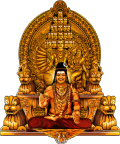With the birth of the 18th century, colonialism by European countries began.
After the Nawab rule, Europeans came to power in various parts of Tamil Nadu. European rule (primarily British rule) over Tamil Nadu lasted for almost two centuries. Thus before the British rule, Tamil Nadu was ruled from Delhi as part of some type of Indian empire for ten long years – first during the Delhi Sultanate of Mohammad-bin-Tughlug and then during the Mugha Empire of Aurangzeb.
The Portuguese, the Dutch, the French and the British came as traders from Europe. The Europeans soon became the masters of all the local rulers and demanded tribute. Those who obeyed were allowed to rule, those who refused were militarily defeated and their land handed over to other more subservient rulers or direct European rule was established. Eventually the British took control of all of Tamil Nadu with the exception of the small Pondicherry territory under the French. Pondicherry remained under French rule until the early 1950s.
Maruthupandyar (Maruthu Pandyar) ruled Sivagangai during the last part of the 18-th century. He became the ruler of Sivagangai which was paying tribute to the British. He continued to pay tribute for many years. Eventually he rebelled against the British and issued an Independence Proclamation from Thiruchi Thiruvarangam Temple on June 10, 1801. He called on the other local rulers to join hands with him and fight the British. Maruthu Pandyar and his allies were quite successful and captured three districts from the British. Seeing the deteriorating situation, the British brought in additional troops from Britain. They also got more troops from the British garrisons in the neighboring Ceylon (now called Sri Lanka). These forces surrounded Maruthu Pandyar’s army at Kalayar Koil, and the latter scattered. Maruthu Pandyar and his top commanders escaped. They regrouped and fought the British and their allies at Viruppatchi, Dindugal and Cholapuram. While they won the battle at Viruppatchi, they lost the other two battles. Maruthu Pandyar was captured at Cholapuram. He was hanged on October 24, 1801. He was the last Tamil ruler in Tamil Nadu to fight the British. The British conquest of Tamil Nadu was complete; all the local rulers paid tribute to them.
Maruthu Pandyar’s 1801 Independence Proclamation was the first such proclamation against the British. But you will not find any mention of it or of Maruthu Pandyar in Indian History texts.
